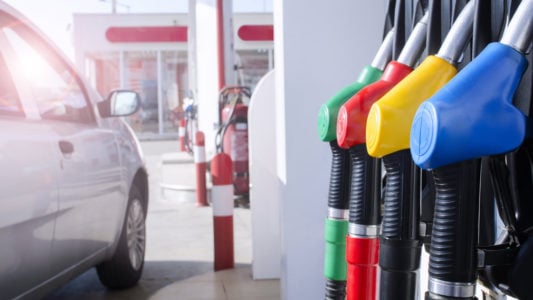Shell leaves the Ukrainian market: what has appeared in place of famous gas stations
21 October 11:05
Ukrnafta and Shell Overseas Investments BV have finalized a deal under which the state-owned company became the owner of 51% of shares in Alliance Holding LLC, the owner of a network of 118 Shell gas stations. This was reported by the press service of Ukrnafta, "Komersant Ukrainian" reports
Alliance Holding LLC is now fully owned by the state, as the remaining 49% of shares are already owned by the State Property Fund.
Ukrnafta’s acting director Yuriy Tkachuk said that the Shell network will expand to 663 gas stations after the rebranding process, which has been underway this year.
The company noted that the brand change process has already begun, and some of the filling stations are already operating under the Ukrnafta brand.
The deal to buy Shell’s filling stations was signed back in 2024, and in January 2025, the Antimonopoly Committee gave official permission for Ukrnafta to acquire the British network.
Confiscation of assets of Russian oligarchs also affected Shell
The process of confiscating the property of Russian oligarchs has also affected the assets of the British company Shell in Ukraine, which have already changed ownership. In February 2024, the High Anti-Corruption Court ruled to seize 100% of the share of the sanctioned Russian businessman Eduard Khudainatov in the Alliance-Ukraine Oil Company, which controlled part of Alliance Holding LLC through the chain of ownership.
The HACCU Appeals Chamber ruled to transfer to the state 49% of Alliance Holding shares owned by Khudainatov, who is under US sanctions. Shell representatives tried to challenge this decision, citing the conclusion of the Amsterdam Court of Appeal that Shell owns more than 97% of its own retail network. However, these arguments were not taken into account by the court.
Which gas stations are better not to refuel at in Ukraine
Drivers should not refuel at autonomous or little-known gas stations if they want their cars to last a long time and without problems. This opinion was expressed in an interview with UNIAN by Dmytro Lyoushkin, founder of the Prime group of companies.
According to him, most of these gas stations – in about 85% of cases – sell low-quality fuel, which is called “bodega” in professional circles. This is fuel produced at mini-refineries with 30-40% alcohol added to reduce the cost of production. The price of such gasoline is 30-40 UAH/l, while a quality product costs about 52 UAH/l. Formally, both options are considered gasoline and can be officially sold, the expert noted.
He warned that the use of cheap, low-quality fuel significantly reduces engine life. According to Mr. Lyoushkin, such fuel often contains an excess of sulfur, which, when it enters into a chemical reaction, turns into sulfuric acid. And it, in turn, destroys the exhaust system, catalysts, and gradually disables the engine and piston group. This process is not instantaneous, but in 1-2 years, problems cannot be avoided.
Mr. Lyoushkin also does not recommend paying more for premium fuel, saying that it does not save on fuel costs. The only difference is the addition of detergent additives that supposedly clean the engine. But, according to the expert, no one knows for sure how effective these additives are:
“They are added in the proportion of a bucket per fuel truck, but no one has seen what they actually clean.”
How much will gasoline prices rise and when?
Starting from the beginning of next year, gasoline prices in Ukraine will increase by about 1-1.5 UAH/l. This was announced by Sergiy Kuyun, director of the A-95 consulting group and fuel market expert.
According to him, the main reason for the rise in prices is another increase in the excise tax on fuel, scheduled for January 1.
“The increase will depend on the type of fuel and will range from one to one and a half hryvnia per liter. This is a classic tax that is ultimately paid by the end consumer, so it will directly affect the retail price. If global oil prices remain stable until the excise tax is raised, the cost of fuel will increase in proportion to the amount of the tax,” Kuyun explained during the telethon.
Thus, the Ukrainian fuel market is undergoing significant transformations: Shell’s withdrawal from the country, the transfer of its filling stations to state ownership and the subsequent rebranding into the Ukrnafta chain indicate an increased role of the state in this area.
At the same time, the situation is complicated by the risks associated with the quality of fuel at non-network gas stations, where, according to experts, fuel that is dangerous for the engine is often sold. This is compounded by the expected price increase in January due to an excise tax hike.
In such circumstances, Ukrainian drivers should be especially attentive to the quality of fuel and choose trusted gas stations to avoid unnecessary expenses for car repairs and low-quality gasoline.









